Eerie and beautiful portraits of sleeping sunbathers on the Baltic Sea coast
Like a shell held to the ear, Tadao Cern’s “Comfort Zone” series echoes the sound of soft waves and evokes the calm sea breeze of a quiet day at the beach. Using a controversial shooting technique that allowed him to go undetected, the Lithuanian photographer used the Baltic Sea coast as his laboratory to capture sleeping sunbathers. The resulting series of 24 photographs is an eerie and beautiful portrait of humans at rest. He spoke to us from his adopted city of Vilnius, where he’s lived for the past decade.
Roads & Kingdoms: You started a career in architecture before turning to photography. What inspired the change?
Tadao Cern: I wanted to try something new. I started with wedding photography. Didn’t have any experience, but I shot my first wedding and afterwards my whole summer got booked. A few months later, I opened my own studio and started shooting editorial and commercial work. Initially, I thought photography would stay a hobby or a side job, but it turned out differently. When I started working on personal projects and felt the total freedom in that, I decided to postpone my career as an architect.
R&K: And Comfort Zone is one of these projects…
Cern: Yes. I see this project as a transition from photography to art.
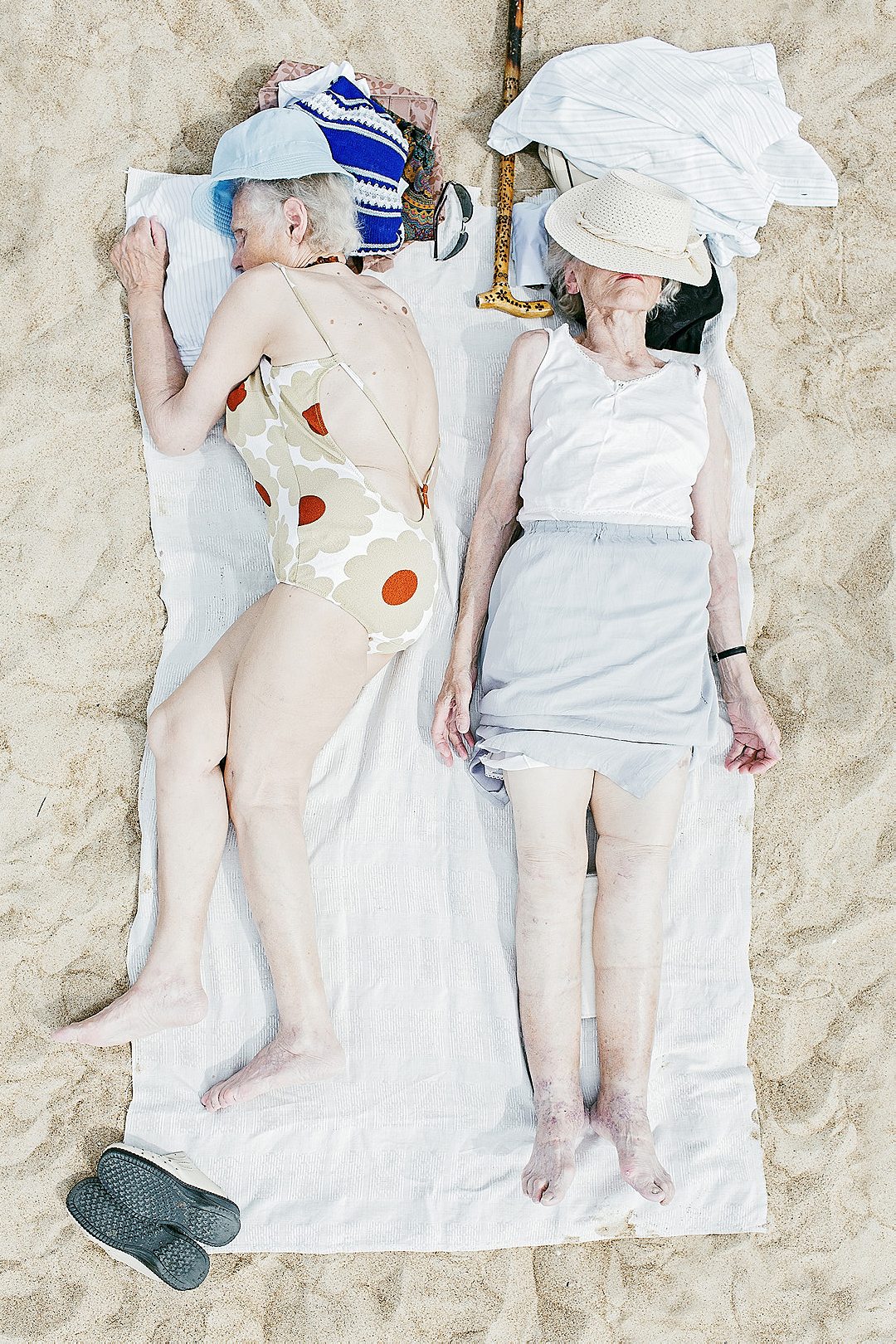
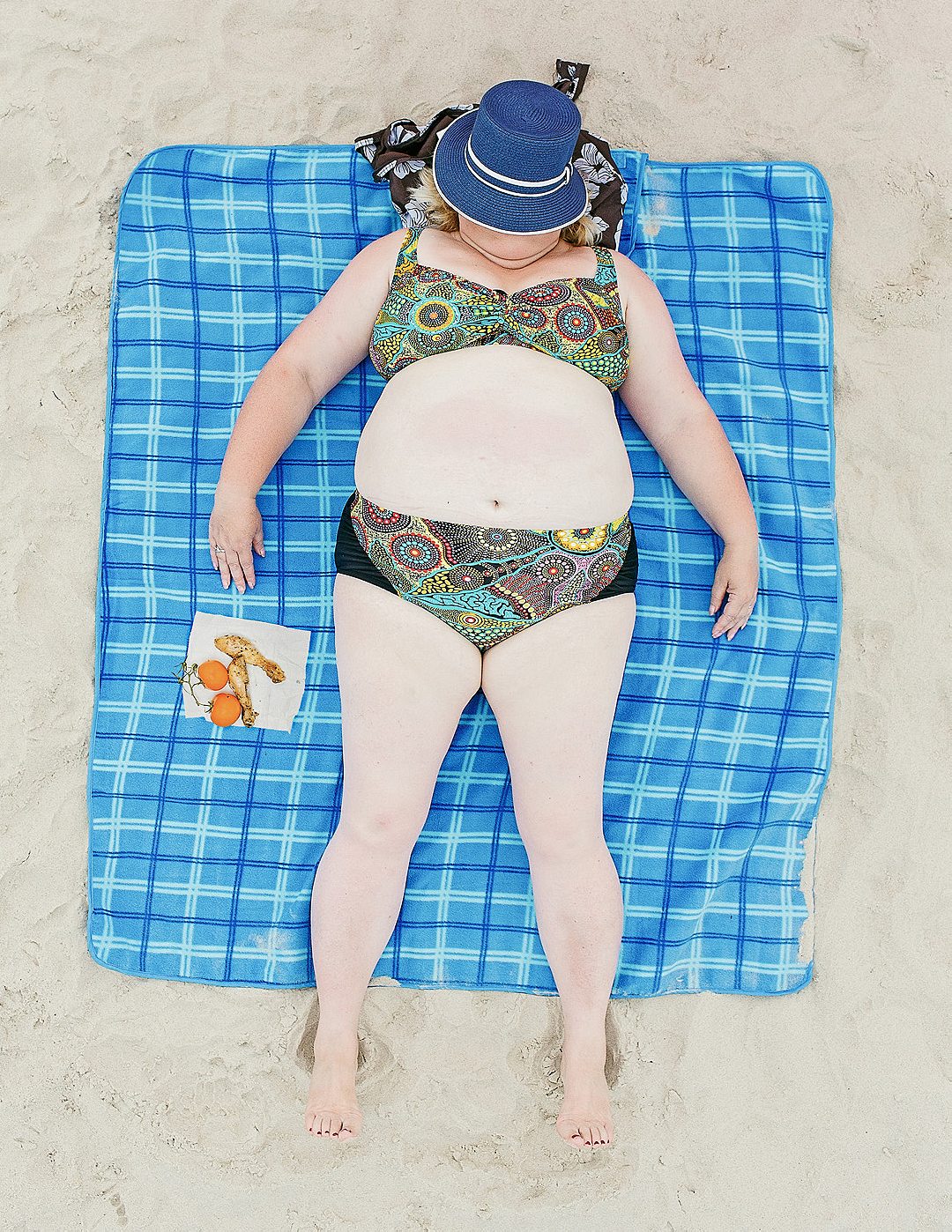
R&K: Can you talk a little bit about your process? How the hell did you manage to take the photos without waking these people up?
Cern: I was using a long pole with a camera on top of it propped up on my shoulders. The process was more one of scanning the ground than taking single shots. No one noticed I was taking these pictures, and that was one of my goals too. I was trying to avoid any confrontation with people. It’s usually the case when I’m taking pictures in public places. I wanted to keep the images as natural as possible, and asking for permission or being noticed would change the whole concept and the final result.
Sometimes I had to give some explanations, but usually I tried to walk away quietly
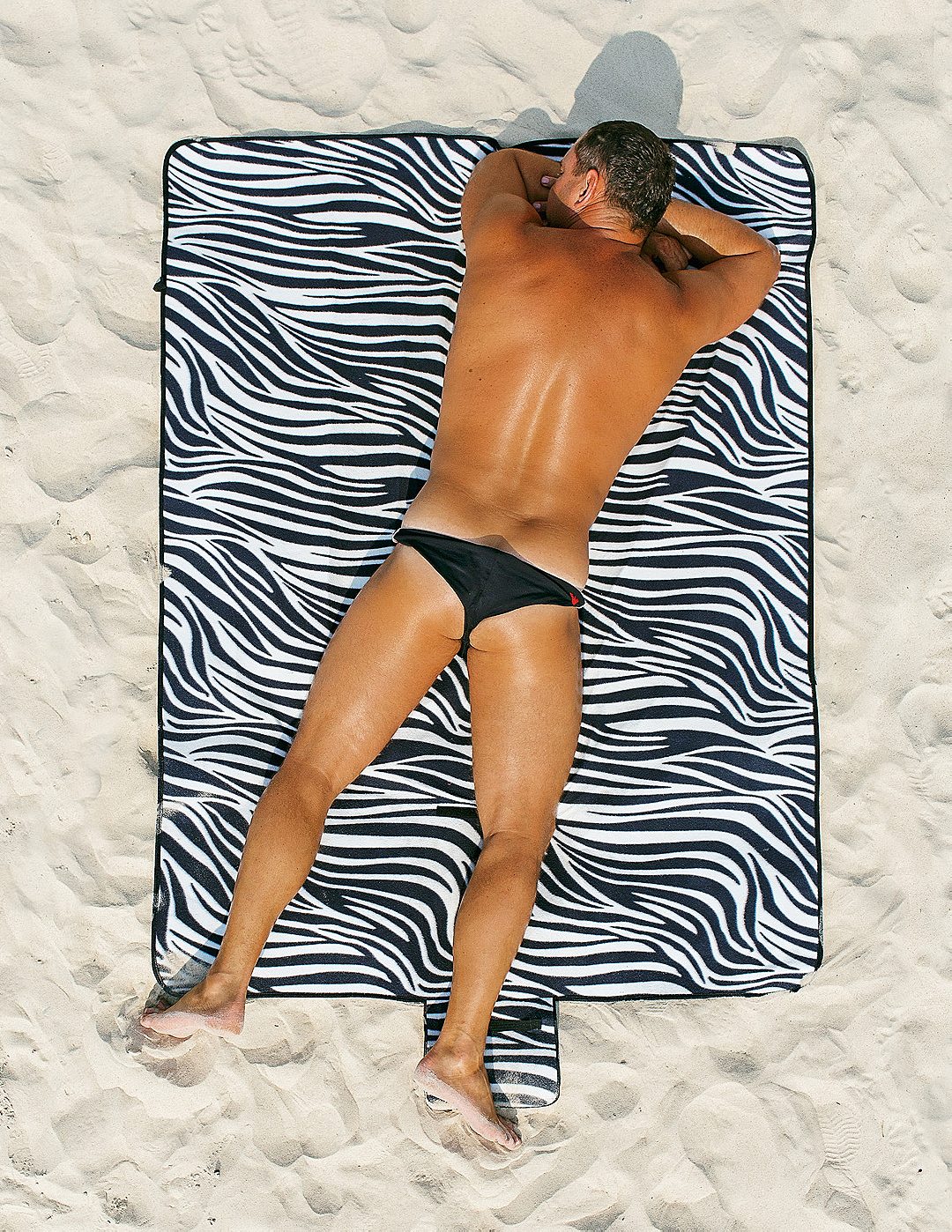
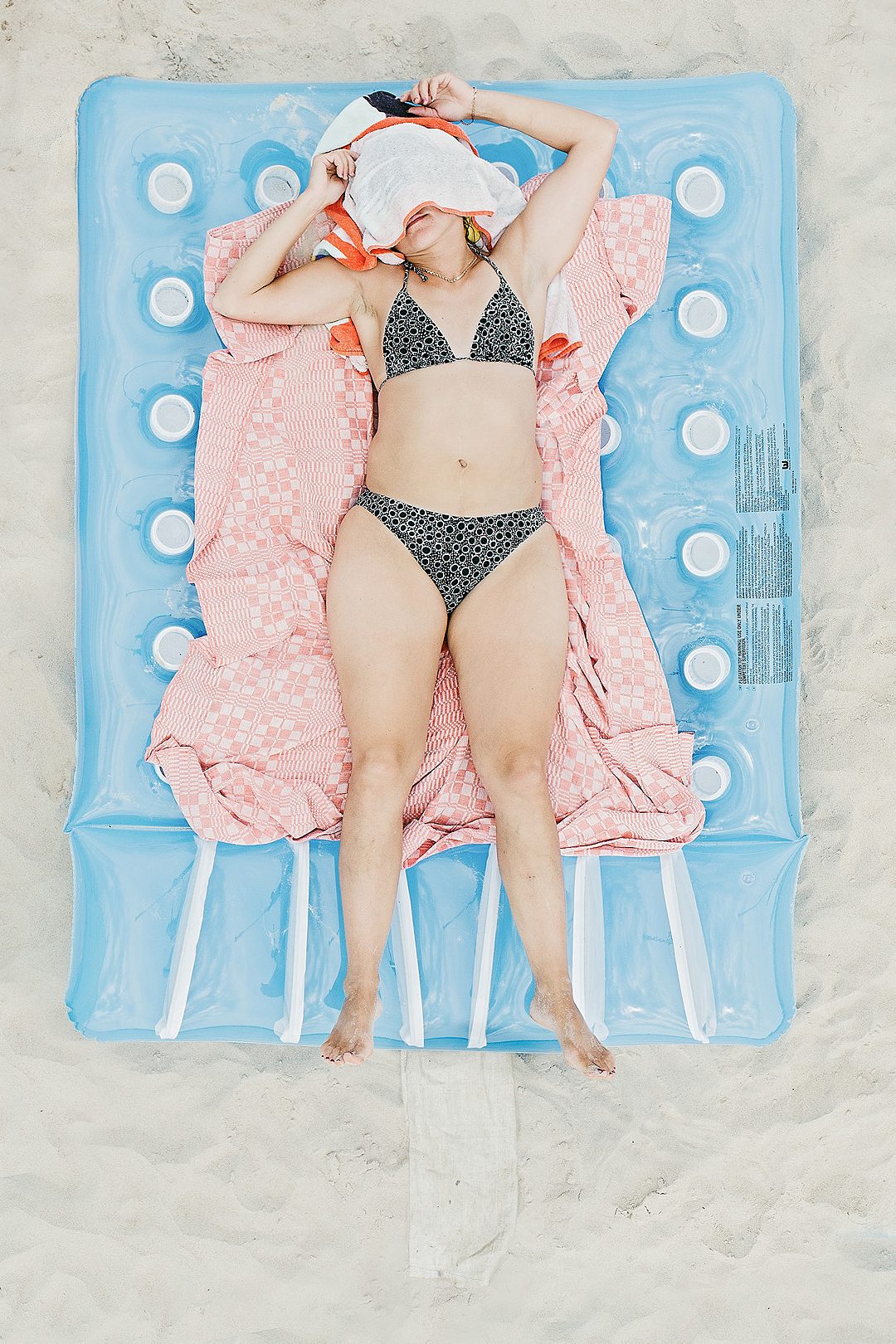
R&K: In the US, it would be VERY controversial to do this… How did people react to your photos?
Cern: I believe that it is controversial everywhere. But it’s the same as street photography and I am interested not in a particular person, but in our habits. I chose to showcase images of people who had their faces hidden. Showing the faces would make these images very personal. You have the right to take pictures in public places. Sometimes I had to give some explanations, but usually I tried to walk away quietly. My usual response to a friendly stranger would be that I am taking pictures of nature, and I wasn’t lying, because people are part of nature.
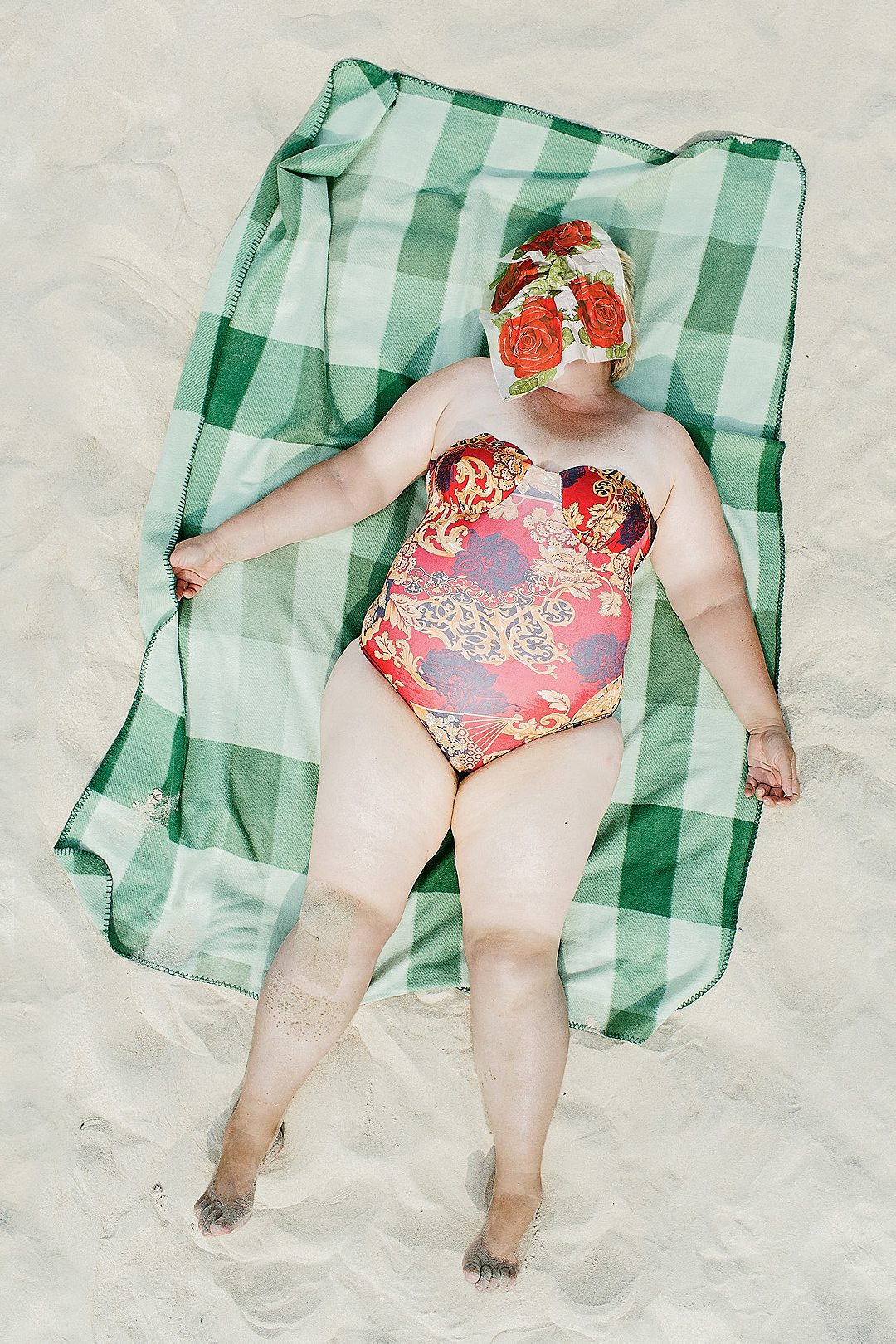
R&K: Many photographers explain they get their best shots when they feel close to the subject, but you seem to say the opposite.
Cern: The best photos are taken when people are in their comfort zone. Sometimes you try to reach this by getting closer to your subject and sometimes it’s better not to let them know that you are taking a picture of them.
R&K: You said this project was a transition from photography to art… But in a way, isn’t this kind of photography the most pure form of documentary?
Cern: Yes, it is pure documentary. But it’s a transition for me personally, because I find this project more mature and more conceptual. That is the direction I’d like to take with my work.
Once we find ourselves on a beach, we forget about everything and start acting in an absolutely different manner
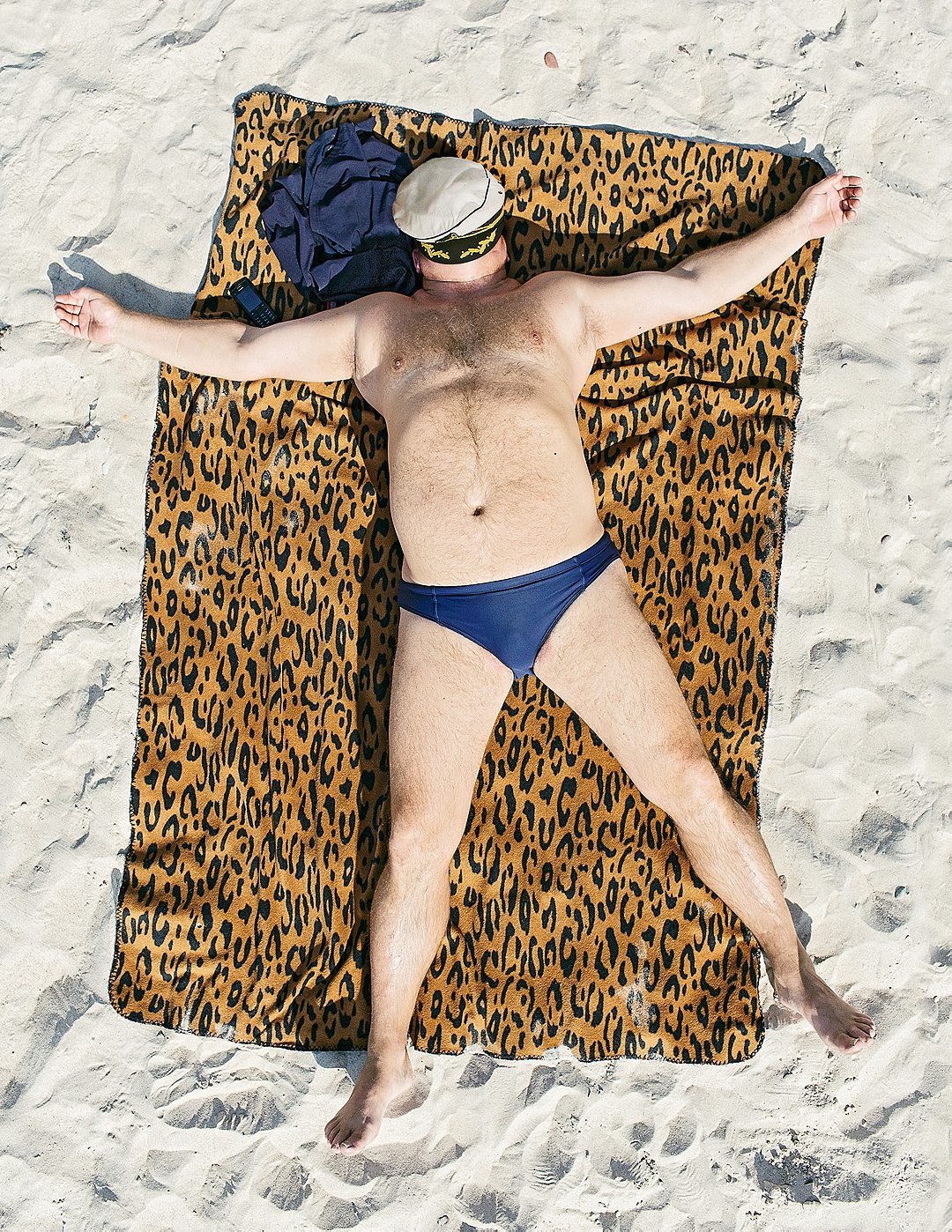
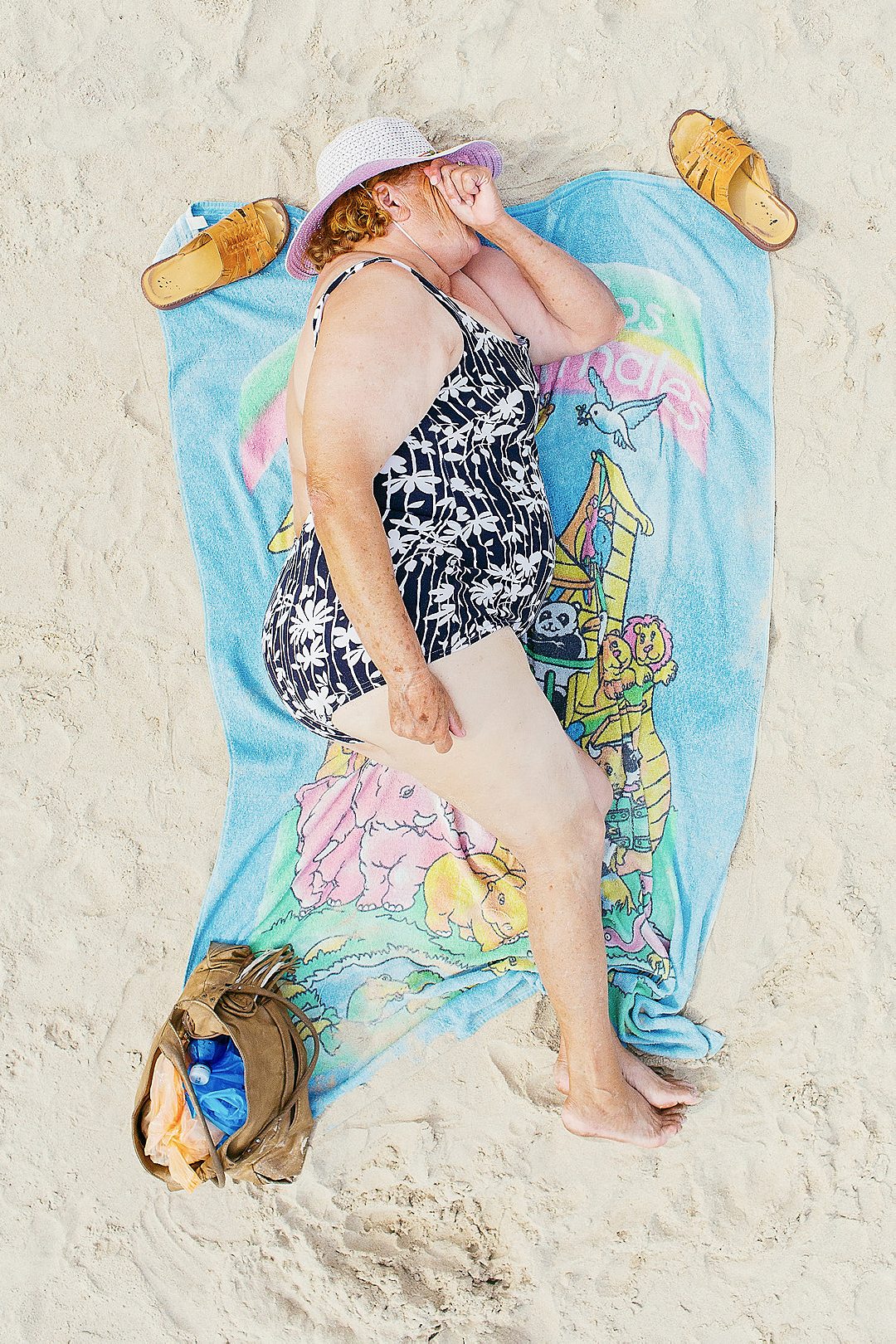
R&K: Why did you pick the beach as a setting instead of the traditional street photography you have been referring to?
Cern: I was shooting in the street for a while. But when I went to a beach I got so inspired and so many thoughts came into my head. I was surprised at how a certain place or surroundings can affect people’s behavior. During our everyday life we attempt to hide our deficiencies, both physical and psychological. But once we find ourselves on a beach, we forget about everything and start acting in an absolutely different manner. Is that because everyone else around is doing the same? If yes, I would love for the same rules to apply beyond the borders of the beach. People would care less about what others think about them and show how different, interesting and beautiful we truly are.
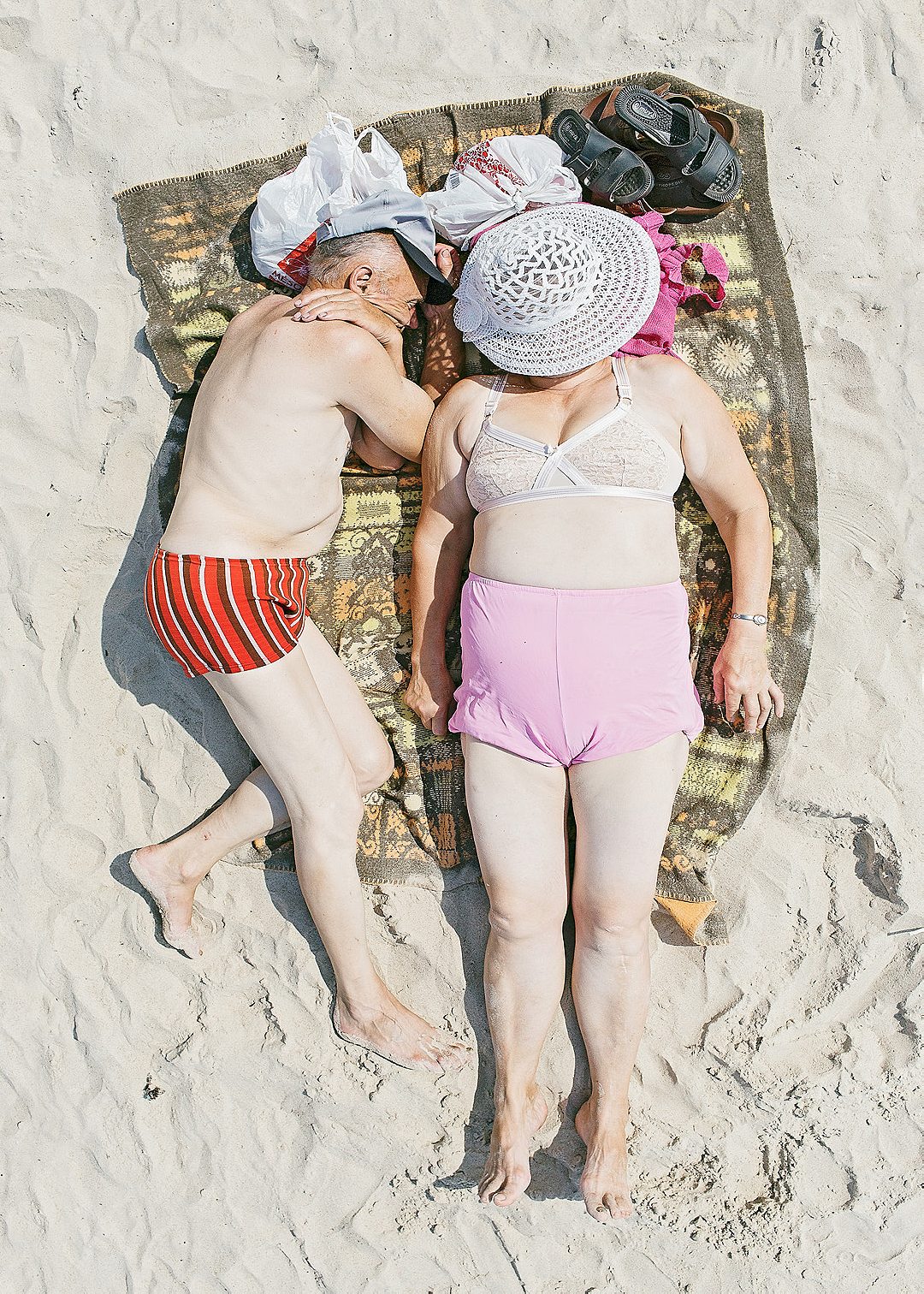
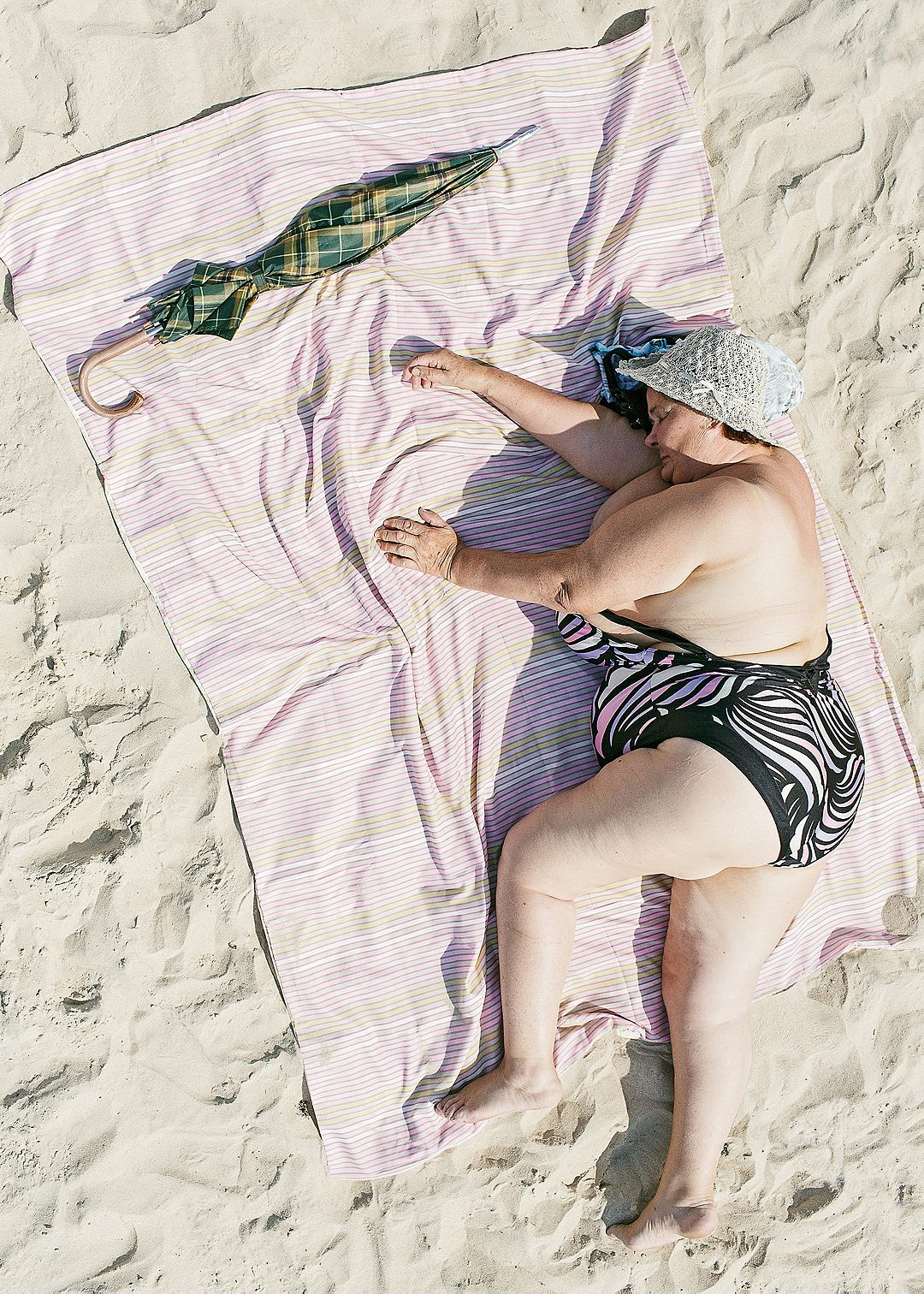
R&K: It’s true, there is something incredibly peaceful in these photographs.
Cern: Yes, that is the point! You feel like you are floating above them and it’s not only a comfort zone for them, but for you too. Everyone dreams of taking a closer look at others. And now you have a chance to. These images are made as huge prints and you can analyze every single detail. They are sleeping, and you don’t have to feel bad for looking at them. I find this so calming.
R&K: Is this beach in Lithuania?
Cern: Not only. It’s on the Baltic Sea coast. I chose it because it’s close-by, and I don’t think I would have found anything different on other beaches around the world. I could have said that these images are from Spain, the UK, or the US, and everyone would have believed me. It’s not about the country. When we are talking about basic human habits and instincts, they are the same everywhere.
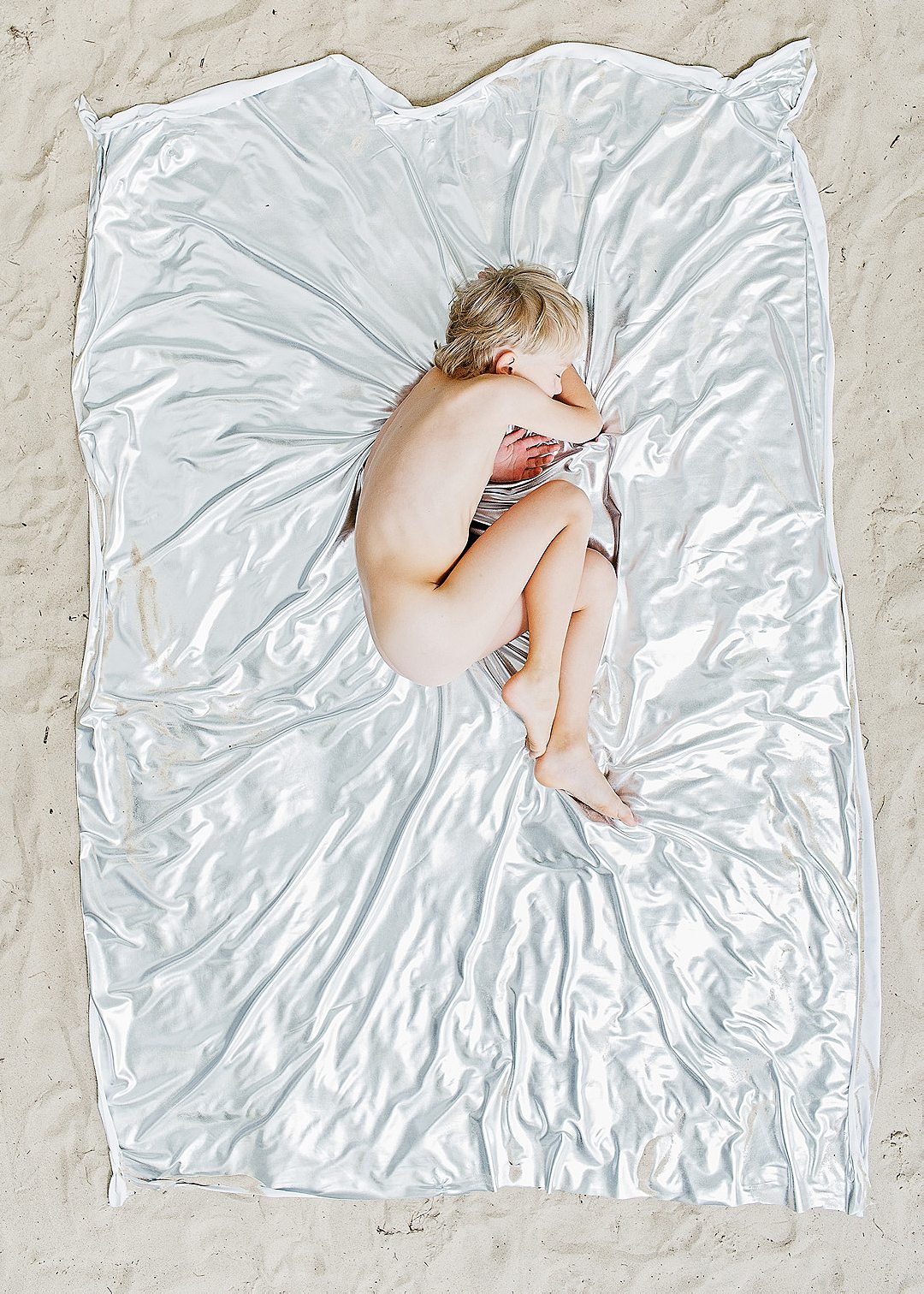
R&K: Has anyone recognized themselves in your pictures?
Cern: One girl said that she recognized her dad in one of them. I gave her a print of the photo that she gave him as a Christmas present. I would have loved to see his face…
R&K: Amazing! But what if someone didn’t want their photo published? Would you consider removing it from your project?
Cern: My intentions are good. I’m not trying to make a joke out of these people. I’m trying to show how beautiful we are and how interesting our stories are. If someone asks me to take a photo down, I would explain my intentions and I think eventually everything would be OK.
You can see more of Tadao Cern’s work here.